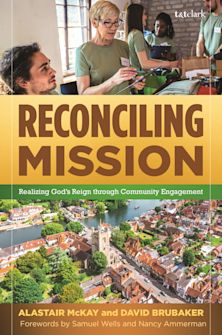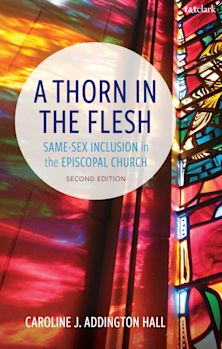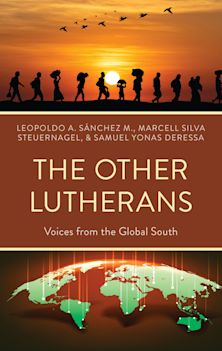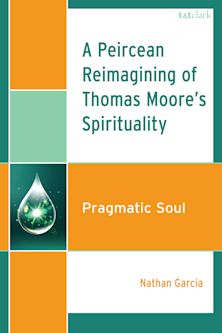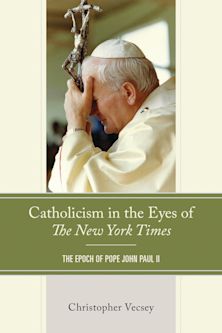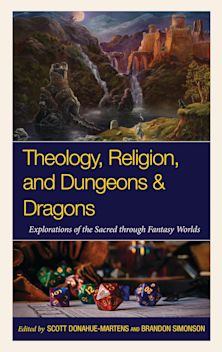- Home
- ACADEMIC
- Theology
- Theology - Other
- Credit and Faith
You must sign in to add this item to your wishlist. Please sign in or create an account
Description
In line with the development of political theology and economic theology in contemporary European thought, Credit and Faith offers a critical account of the faith structures within economic life and institutions. Goodchild’s ground-breaking work provides a philosophical appropriation of the economic dimension of the New Testament and fresh theological, philosophical and economic perspectives on the present.
Covering the theological roots of the way economic life was, and is, articulated, the philosophical roots of value and debt and the economic roots of credit and creation, this book charts the emergence of early theories of capital and banking through a consideration of credit. It draws on some neglected historical figures, as well as Jules Lagneau, Simone Weil, the Kantian problem of freedom and necessity and a critical reading of the early Marx and of Nietzsche’s genealogy; through this Goodchild explains how the Financial Revolution was able to conceal the credit economy which was its foundation and foster the pursuit of self-interest instead of the common good.
This innovative interweaving of theology, philosophy and economics constructs a new metaphysical framework for a critical account of the faith structures within economic life and institutions and returns to the practice of philosophy as a way of life – a practical, engaged, worldy discipline.
Table of Contents
Introduction
Part One: Gospel and Economy: Theological Roots
1.1 Through the Eye of a Needle
1.2 Economy in the New Testament
1.3 Impertinent Guests
1.4 The Economy of Salvation
1.5 Credit or Grace
Part Two: Value and Debt: Philosophical Roots
2.1 Redemption
2.2 Value
2.3 Necessity and Freedom
2.4 Estrangement
2.5 Fidelity
2.6 Light and Repose
Part Three: Credit and Creation: Economic Roots
3.1 Credit as Offering: Household Economics
3.2 Credit and Participation: Interest
3.3 Appropriating Credit: Tokens of Value
3.4 A Culture of Credit
3.5 Measure for Measure
Conclusion
Product details
| Published | Nov 12 2019 |
|---|---|
| Format | Ebook (PDF) |
| Edition | 1st |
| Extent | 206 |
| ISBN | 9798881856311 |
| Imprint | Rowman & Littlefield Publishers |
| Publisher | Bloomsbury Publishing |
About the contributors
Reviews
-
Philosophical interventions into economics typically diagnose and isolate a particular problem of injustice or exploitation. Goodchild’s work is much more ambitious in aiming to provide an analysis of the main concepts that bind economics and theology and how these concepts have transformed and influenced our understanding. Credit to Goodchild for providing arguments that are convincing, lively, and original!
Todd Mei, Head of Philosophy, University of Kent, UK
-
Philip Goodchild is a leading philosopher of religion engaging the most important theoretical questions. In Credit and Faith, following his groundbreaking Theology of Money, he examines the profound intersection of theology and economics. Goodchild fashions a bold Christian philosophy of offering and participation that liberates us from the oppression of appropriation by people, goods, and systems. Powerfully recommended!
Clayton Crockett, Professor of Philosophy and Religion, University of Central Arkansas, USA
-
As is the case with Philip Goodchild’s earlier work, Credit and Faith takes remarkable and unprecedented strides in mapping out the deeper political theology behind modern economic theory. Not since Max Weber linked the spirit of capitalism to the Protestant ethic has any thinker so insightfully analyzed the religious values and historical antecedents behind today’s global market economy.
Carl Raschke, Professor of Religious Studies, University of Denver, USA
-
Not only does Goodchild know how to write, he knows how to think as well. His deconstructive-reconstructive cross-readings of the two disciplines open up unexpected dimensions in both economics and theology. Much more than mere creative interpretations of shared key-concepts - concepts such as debt, price, and trust - his new book Credit and Faith has the potential of becoming a true discours de la méthode.
Chris Doude van Troostwijk, Luxembourg School of Religion and Society
-
Philip Goodchild's two-decade long investigations into the mysteries and mystifications of the money form have led, finally, to this magnum opus. It is a tour de force of intellectual rigor combined with an uncanny ability to sustain multiple perspectives, constantly showing us that we are not yet asking the right theological questions about what an economy is, could be, or should be. It is a visionary work offering both difficult and inspiring insights for credit and faith in the future.
Joshua Ramey, Visiting Assistant Professor of Peace, Justice, and Human Rights, Haverford College, USA
-
In this pathbreaking work, Philip Goodchild directs our attention to the important connections between credit and faith, revealing profound implications for philosophy, theology, and economics. Beyond these disciplinary contributions, Goodchild strikes out on a quest to reshape the nature of the social and our precarious life together, upending the death-dealing grip of debt in favor of life-generating options for credit and trust.
Devin Singh, Associate Professor of Religion at Dartmouth College, USA, and author, Divine Currency: The Theological Power of Money in the West

ONLINE RESOURCES
Bloomsbury Collections
This book is available on Bloomsbury Collections where your library has access.












